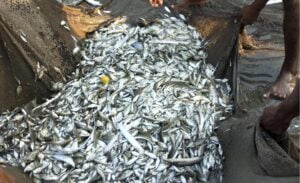
Responsible fishing is a crucial practice ensuring our oceans’ sustainability and their resources.
Oceans are vital to life on Earth, providing food, regulating the climate, and supporting diverse ecosystems.
It involves using methods that minimize the impact on marine life and habitats and enforcing regulations to prevent overfishing and illegal practices. Without responsible fishing, we risk depleting our oceans’ resources and causing irreparable damage to the delicate balance of our planet’s ecosystems. It is up to us to take action and prioritize the health of our oceans for the sake of future generations.
Understanding Responsible Fishing
Responsible fishing involves adhering to principles that promote marine ecosystems’ long-term health and productivity. There are many other ways industrial fishing businesses can be sustainable to ensure they contribute to a more environmentally friendly environment.
This includes using sustainable fishing methods, reducing bycatch and waste, and supporting scientific research to better understand the impacts of fishing on marine life. By adopting responsible fishing practices, we can ensure that our oceans remain healthy and productive for generations. Sustainable fisheries management is key to responsible fishing, ensuring that fish populations are healthy.
Ecosystem-based fisheries management considers the entire ecosystem, including the interactions between species and their environment.
The Impacts of Irresponsible Fishing on Oceans
Overfishing can deplete fish populations, disrupt food webs, and harm marine ecosystems. Irresponsible fishing practices can destroy marine habitats and lead to biodiversity loss. Bycatch, the accidental capture of non-target species, can have ecological and economic implications.
Additionally, illegal, unreported, and unregulated fishing can undermine conservation efforts and collapse fish stocks. It is crucial to implement sustainable fishing practices and enforce regulations to protect our oceans and the livelihoods of those who depend on them.
The Importance of Embracing Responsible Fishing
Responsible fishing helps to conserve marine biodiversity and maintain ecosystem balance. It ensures the preservation of fish stocks for future generations. It provides sustainable livelihoods for fishing communities and can have economic benefits.
Moreover, responsible fishing can also have positive impacts on the tourism and recreation industries that rely on healthy oceans. However, without proper management and enforcement, irresponsible fishing practices can continue to threaten the health of oceans and communities that depend on them.
Measures and Practices for Responsible Fishing
Science-based fishing quotas and regulations can help ensure sustainable fish populations. Sustainable fishing methods and gear can reduce the impact on marine habitats and non-target species. Innovative techniques can help reduce bycatch. Transparency and traceability in the seafood industry can promote responsible practices.
Additionally, supporting small-scale and local fishing communities can help promote sustainable fishing practices and preserve traditional fishing knowledge. Cooperation is required between governments, businesses, and conservation organizations to protect the long-term well-being of our oceans and the livelihoods of those who depend on them.
International Collaboration and Policies
International agreements and organizations play a role in promoting responsible fishing practices. Governments are responsible for implementing and enforcing regulations to ensure sustainable fisheries management. Collaboration between stakeholders, NGOs, and the fishing industry is crucial for achieving responsible fishing practices.
Overfishing happens when fish are caught faster than they can replenish their populations. This may very well lead to a decline in fish populations until they are entirely decimated.
Overfishing is regarded as one of the most significant drivers of declines in ocean wildlife populations. For instance, the number of overfished stocks worldwide tripled in half a century. Currently, fully one-third of the world’s assessed fisheries are pushed beyond their biological limits.
Overfishing is closely tied to bycatch—capturing unwanted sea life while fishing for a different species. This can easily result in the needless loss of hundreds of thousands of sea turtles and billions of fish.
Overfishing has adverse effects that extend beyond the marine environment. Countless people rely on fish for protein, and fishing is the principal source of livelihood for millions of people around the world. Overfishing can also disrupt food webs and harm marine ecosystems.
Challenges and Future Outlook
- Illegal, unreported, and unregulated (IUU) fishing remains a significant challenge for responsible fishing practices.
- Increased awareness and education are needed to promote responsible fishing practices.
- Technological advancements can play a role in promoting responsible fishing practices. Interestingly, there are a few tricks you may want to implement for successful fishing that involve the use of technology.
Conclusion
Embracing responsible fishing practices is crucial for our oceans’ long-term health and productivity. Individuals, communities, and governments must prioritize responsible fishing practices to ensure a sustainable future for our oceans. Through responsible fishing practices like the ones suggested at https://bassanglermag.com/, we have the potential to create a sustainable future for our oceans.

